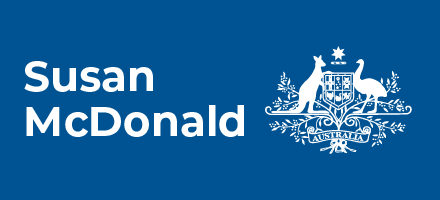WHAT THE NEW RENTAL RULES MEAN FOR COMMERCIAL LANDLORDS AND TENANTS
Please find below, a Question & Answer document concerning the Mandatory Code of Conduct for commercial leases agreed to by the National Cabinet.
Why have a mandatory code?
The mandatory Code will help ensure businesses are able to emerge from this challenging period and bounce back on the other side.
The mandatory Code will allow an appropriate burden share over the period and provide tenants and landlords with a framework with which to negotiate during this period.
The more supportive we all are in ensuring as many businesses are in a position to continue activity after the passing of the COVID-19 pandemic, the more successful the recovery will be on the other side.
Who is covered by the mandatory code?
The mandatory Code applies to all commercial leases held by a tenant with annual turnover of up to $50 million and who are suffering financial stress or hardship as a result of the COVID-19 pandemic (as defined by their eligibility for the Commonwealth Government’s JobKeeper program).
How will turnover be applied?
The $50 million annual turnover threshold will be applied in respect of franchises at the franchisee level, and in respect of retail corporate groups at the group level (rather than at the individual retail outlet level).
What does the mandatory code mean for eligible tenants?
Under the mandatory code eligible tenants will receive rent waivers of no less than 50 per cent of the total reduction in rent payable over the COVID-19 pandemic period.
Waivers should constitute a greater proportion of the total rent payable in cases where failure to do so would compromise the tenant’s capacity to fulfil their ongoing obligations under the lease agreement. Regard must also be had to the landlord’s financial ability to provide such additional waivers.
Eligible tenants will also benefit from:
• A prohibition on landlords from terminating leases for non-payment of rent during the current period.
• A freeze on rent increases (except for retail leases based on turnover rent);
• A prohibition on landlords drawing on a tenant’s security for the non-payment of rent (be this a cash bond, bank guarantee or personal guarantee)
• An opportunity to extend the lease for an equivalent period of the rent waiver and/or deferral period;
• No fees, interest or other charges on any rent waived.
• No fees, charges nor punitive interest may be charged on deferrals.
How will the code be implemented?
The Code will be given effect through relevant state and territory legislation or regulation as appropriate.
How will proportionality apply?
Proportionality means the eligible tenants would be provided with cash flow relief in proportion to the loss of turnover they have experienced from the COVID-19 crisis. A minimum of 50 per cent of this cash flow relief will be a waiver of rent.
If the eligible tenant’s revenue has fallen by 100%, then at least 50% of total cash flow relief is rent free/rent waiver and the remainder is a rent deferral.
If the eligible tenant’s revenue has fallen by 30%, then at least 15% of total cash flow relief is in the form of a rent waiver and the remainder is rent deferral.
Example 1
If you are an eligible tenant and your rent is $1000 a week, and you have a 30 per cent reduction in turnover, then you will get at a minimum a $300 rent reduction. Of which:
• $150 will be in the form of a rent waiver (or 50% of the rent reduction); and
• $150 will be in the form of a rent deferral (or 50% of the rent reduction).
The period of the rent reduction and rent waiver and deferral will be in line with duration of the COVID-19 pandemic.
Example 2
For the same rent ($1000), if you have a 100% reduction in turnover as you are shut down, then you will get a $1000 rent reduction. Of which:
• $500 will be in the form of a rent waiver (or 50% of the rent reduction); and
• $500 will be in the form of a rent deferral (or 50% of the rent reduction).
How does the deferral work?
Payment of rental deferrals to the landlord must be amortised over the balance of the lease term and for a period of no less than 24 months, whichever is the greater, unless otherwise agreed by the parties.
No fees, charges nor punitive interest may be charged on deferrals.
How are other expenses and outgoings treated?
The mandatory code provides parties with flexibility with respect to outgoings that are normally passed onto tenants via lease arrangements, noting that practices may vary across state and territory jurisdictions. While a case by case approach will apply, landlords should where appropriate seek to waive recovery of any other expense (or outgoing payable) by a tenant, under lease terms, during the period the tenant is not able to trade. Landlords would have the ability to reduce services as required in such circumstances.
How long will the code apply for?
The mandatory Code comes into effect in all states and territories from a date following 3 April 2020 (being the date that National Cabinet agreed to a set of principles to guide the Code to govern commercial tenancies as affected by the COVID-19 pandemic) to be defined by each jurisdiction, for the period during which the Commonwealth JobKeeper program remains operational.
Will tenants be able to break leases?
States and Territory jurisdictions will not implement the code in a way that tenants have a unilateral right to terminate leases on the grounds of financial distress.
However, should a landlord not abide by the code, they would be breaking the relevant laws governing their arrangement and they may risk breaching their lease agreement, which could allow the tenant to break the lease.
What happens if a lease is already due to expire?
Payment of rental deferrals by the tenant must be amortised over the balance of the lease term and for a period of no less than 24 months. In these circumstances, the tenant would have a minimum term to amortise any deferral payment due to the landlord.
Do I have to be bound by the code if I am a landlord, what happens if I don’t comply?
For eligible tenants, you will be bound. If you don’t comply they would be breaking the law in the relevant state and territory jurisdiction. Should a landlord not abide by the code, they would be breaking the relevant laws governing their arrangement and they may risk breaching their lease agreement, which could allow the tenant to break the lease.
What happens if a tenant and landlord don’t agree, for any reason?
Binding mediation will ensue.
Where landlords and eligible tenants cannot reach agreement on leasing agreements (as a direct result of the COVID-19 pandemic), the matter should be referred and subjected (by either party) to applicable state or territory retail/commercial leasing dispute resolution processes for binding mediation, including Small Business Commissioners/Champions/Ombudsmen where applicable.
Where do I go if I have a complaint about a landlord or tenant? What remedies can I get?
The Code will be supported by state based Industry Code Administration Committees, comprising representatives from relevant industry bodies representing landlord, tenant and SME interests, with an Independent Chair appointed by the relevant State/Territory Government.
State and Territory Governments will have more to say as the implement the mandatory code.
What relief is government providing for SME tenants in government-owned buildings?
The Commonwealth Government will act as a model landlord by waiving rents for all its small and medium enterprises and not-for-profit tenants within its owned and leased property across Australia.
The Rent Relief Policy will include a mutual obligation requirement on the small and medium sized enterprises and not-for-profit tenants to continue to engage their employees through the JobKeeper initiative where eligible, and if applicable, provide rent relief to their subtenants.
Is this too much of a burden share on landlords, especially small ones who only have one property as their only source of income?
Everyone needs to make a contribution to getting to the other side, landlords, tenants and banks all have a role to play. Landlords would rather have a tenant and a lease on foot today, than an empty property and no income and the prospect of a significantly reduced rent on a lease in the future. I am sure they will see that providing appropriate support to their tenants is in their own interest, and will have prudently saved for a rainy day.
Small landlords should be able to get cash flow support from the banks if they do the right thing, and a number of government programs are helping SME tenants boost their cash flow to get to the other side.
Will landlords receive any land tax or other concessions?
It is expected that proposed state and territory land tax relief would be provided to eligible landlords subject to (and abiding by) the mandatory Code. Under the mandatory Code any reduction in statutory charges (e.g. land tax, council rates) or insurance will be passed on to the tenant in the appropriate proportion applicable under the terms of the lease.
What about residential leases?
National Cabinet agreed to a moratorium on evictions over the next six months for residential tenancies in financial distress who are unable to meet their commitments due to the impact of coronavirus.
National Cabinet agreed that any further measures would be a matter for state and territory jurisdictions, who have responsibility for these issues.

